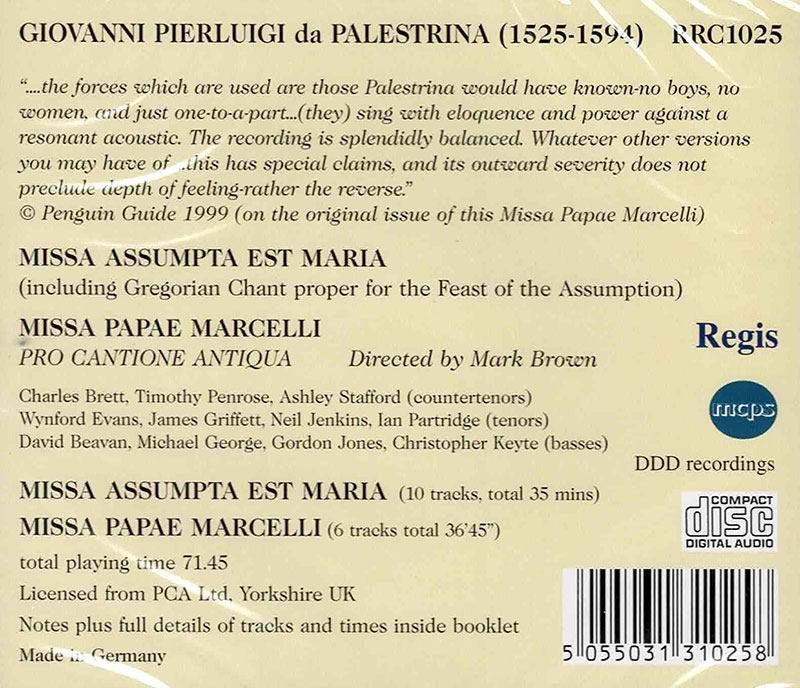Logowanie
OSTATNI taki wybór na świecie
Nancy Wilson, Peggy Lee, Bobby Darin, Julie London, Dinah Washington, Ella Fitzgerald, Lou Rawls
Diamond Voices of the Fifties - vol. 2
Tylko 1000 egzemplarzy!!!
DVORAK, BEETHOVEN, Boris Koutzen, Royal Classic Symphonica
Symfonie nr. 9 / Wellingtons Sieg Op.91
nowa seria: Nature and Music - nagranie w pełni analogowe
Petra Rosa, Eddie C.
Celebrating the art and spirit of music - vol. 3 - Pure
warm sophisticated voice...
Peggy Lee, Doris Day, Julie London, Dinah Shore, Dakota Station
Diamond Voices of the fifthies
Tylko 1000 egzemplarzy!!!
SAMPLER - STS DIGITAL, Buddy Tate, Milt Buckner, Walace Bishop
Jazz Masters - Legendary Jazz Recordings - v. 1
proszę pokazać mi drugą taką płytę na świecie!
Chesky! Niezmiennie perfekcyjny
Winylowy niezbędnik
ClearAudio
Double Matrix Professional - Sonic
najbardziej inteligentna i skuteczna pralka do płyt winylowych wszelkiego typu - całkowicie automatyczna
PALESTRINA, Pro Cantione Antiqua, Mark Brown
Missa Assumpta Est Maria / Missa Papae Marcelli
FrKurt Messick 5.0 out of 5 stars Magnificent interpretation 10 February 2006 --Palestrina-- Giovanni Pierluigi de Palestrina is sometimes called the greatest composer of the Roman Catholic church. Born in 1525 near Rome, he spent the better part of his career in service to the church as a choir member, choir master, conductor, composer and school master. He was sought after by many churches, and sometimes his popularity and skill got him into trouble both with his clerical patrons and with fellow musicians. He was offered prestigious positions in Rome and Vienna which were ultimately withdrawn because Palestrina's salary and conditions requirements were too high. He had some influence on the Council of Trent's musical decisions for reform of the Catholic worship practices, and was involved intimately with revising the Gradual and produced a harmonised version of the Latin Hymnal in 1589. He died in 1594. --Motets and Masses-- The first mass presented here is Missa Papae Marcelli. Written in the 1550s, it wasn't published until the next decade. Pope Marcellus was only pope for a few weeks, but managed to endear himself to composers and conductors by insisting upon clarity as the highest of virtues for choristers. Palestrina's Stabat Mater was never published in his lifetime, but remains a Latin setting that is unsurpassed for this liturgical piece. The motets here include Dominus Jesus, Alma Redemptoris Mater, and Peccantem Me Quotidie. These are more sombre and subdued pieces. There is a gentle flow and an interesting spirit of simplicity about them. Palestrina manages a good blending of Renaissance polyphony with earlier influences in these motets, proving himself a master composer who knows his musical history well. The performance here is done by the Pro Cantione Antiqua, led by Bruce Turner. The Pro Cantione Antiqua have had an extensive recording and performing history, with great experience in the kind of chant, polyphony and Renaissance style that Palestrina calls for. Turner states that in a Renaissance setting, 'music is not something fixed by the written note but something to be recreated rather than reproduced.' There is a free-flowing quality to this performance that gives an interesting interpretation to these magnificent pieces.






























